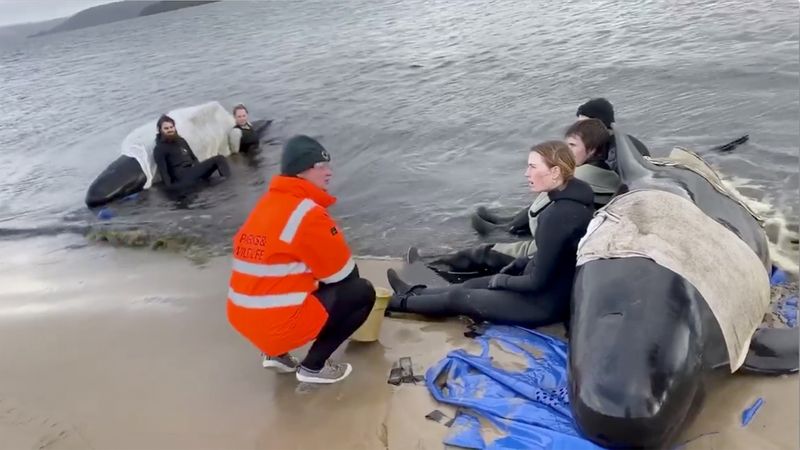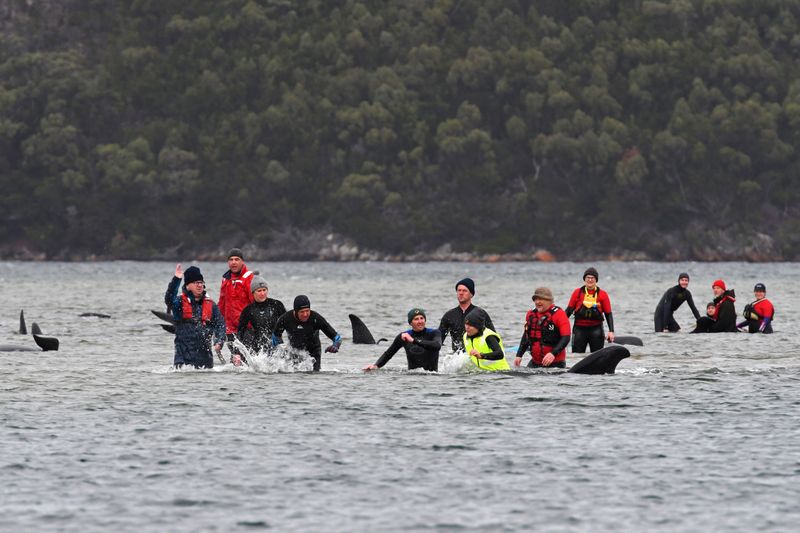SYDNEY (Reuters) – Rescuers were trying to save the few remaining long-finned pilot whales still floundering in shallow waters off the Australian coast on Friday in one of the world’s biggest mass whale strandings.
With time running out for up to 20 breathing mammals still trapped in Macquarie Harbour in Tasmania – and as news emerged of a much larger whale stranded on a Queensland beach – rescuers had managed to save about 94 of the 470-strong pod while almost all the others had died.
“We haven’t dealt with a stranding of this type before (and) we are getting up to 94 animals released – that is one hell of an effort,” said Kris Carlyon, a marine conservation biologist advising the government’s response.
Most of the released whales, a gregarious species that lives in deep waters, were expected to “regroup” and recover from the traumatic event, Carlyon said, though some had returned to the sandbar and died.
Meanwhile, a whale believed to be a humpback was stranded off the remote Indigenous community of Pormpuraaw, some 3,800 kilometers (2,360 miles) north of Tasmania, police said.
“It is 18 metres (60 ft) long, so it was a great community effort to keep the animal alive today, and it is still blowing air,” said Nick Ziersch, the local officer in charge.
Ziersch said there was little the community could do, but the animal had a chance as the tide rose overnight. A whale beaching had not been recorded in the area before, he added.
The rescue in Tasmania, which has involved a team of more than 100, would continue through Friday and Saturday to try to save the last few animals, officials said.
The bodies of the dead whales were being separated into groups and enclosed with water booms to try keep them in one place and isolated from sharks and other predators, as officials prepare to dispose of them at sea.
The stranding, the biggest on record in modern Australia and one of the largest in the world, has drawn attention to a natural phenomenon that remains largely a mystery to scientists.
(Reporting by Paulina Duran in Sydney; editing by John Stonestreet)




















